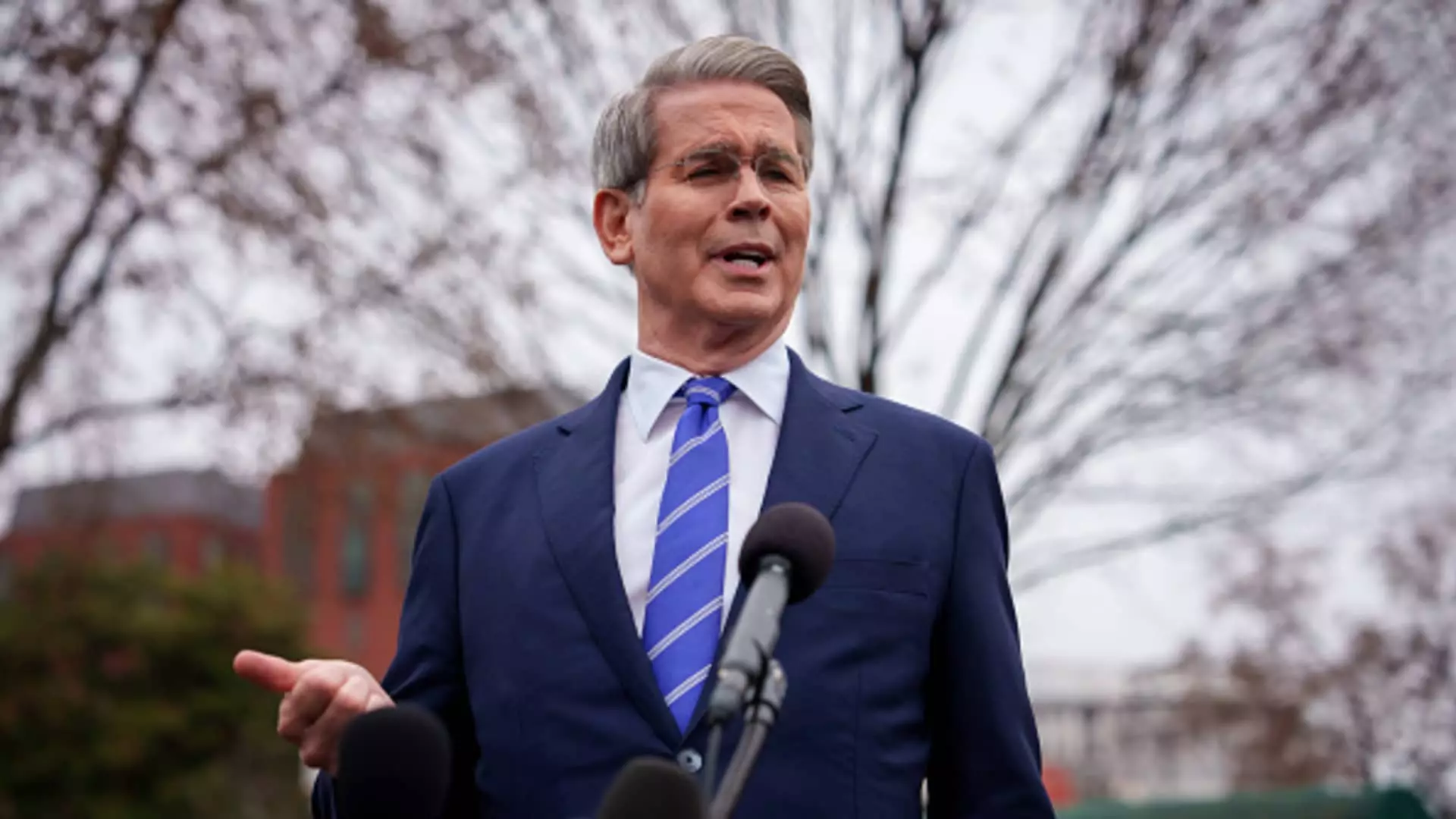The recent dramatic sell-off in the stock market, particularly among technology stocks, defies superficial explanations and highlights deeper systemic issues. Treasury Secretary Scott Bessent’s attempt to attribute the turmoil primarily to competition from DeepSeek, a Chinese AI startup, is a narrow perspective that overlooks the wider implications of globalization and the geopolitical landscape. While DeepSeek’s emergence may have triggered a crisis of confidence among investors in the so-called Magnificent 7—Apple, Amazon, Tesla, Alphabet, Microsoft, Meta, and Nvidia—it’s crucial to understand that this is merely a symptom of a much larger problem.
Bessent’s comments imply that protectionist policies of the Trump administration are extraneous to the current crisis, yet this perspective is dangerously simplistic. The fundamental issue lies in a world economy that has become increasingly interconnected, where innovations in one corner of the globe can precipitate vast market fluctuations elsewhere. As such, ignoring the implications of aggressive tariffs and isolationist strategies will lead to unintended repercussions not just for U.S. tech giants, but also for the overall market stability.
The Tariff Impact Dilemma
In recent months, President Trump’s administration has imposed steep tariffs as part of an assertive economic strategy aimed at rebalancing trade. While Bessent downplays these tariffs’ impact, it’s hard to overlook the immediate emotional and financial reactions they incite among investors. This hit to market sentiment is pivotal, as fluctuations driven by fear often amplify losses, triggering a flurry of panic selling. The market’s swift response—an overnight dive resulting in the S&P 500 teetering on the brink of entering correction territory—suggests that investor confidence is fragile and easily shaken.
More insidiously, the tariffs themselves create an environment of uncertainty, making it increasingly difficult for analysts and investors to forecast economic stability. The psychological strain from potential inflation and slower economic growth stemming from protectionist policies coalesces to form a storm cloud over the market that cannot be ignored. The President’s aggressive maneuvering in tariffs should resonate as more than just a policy decision; it acts as a clarion call to investors about the faltering stability of the U.S. economy.
Can We Trust the System?
Ultimately, the 13% decline in market value signals something terribly concerning about the larger economic landscape. It’s not only the tech stocks experiencing turmoil—it’s an entire ecosystem that thrives on innovation, competition, and open trade. Trust in the system is frayed; investors fear they are not just betters on emerging tech but players in a broader game of geopolitical chess.
Bessent argues for optimistic economic conditions as a salve for these woes, but one has to ask: how can confidence flourish amidst a backdrop of steep tariffs and international rivalry? If the innovation that drives American prosperity is under threat from foreign competition, coupled with domestic policy that alienates trade partners, the long-term damage could extend far beyond a mere correction. We are witnessing a watershed moment that could reshape not only the stock market but the fabric of American industry for years to come.

